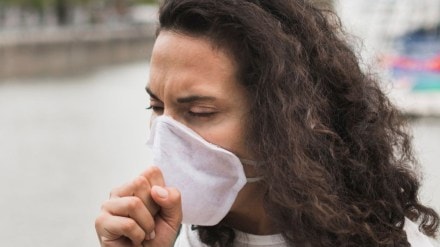Air quality in Delhi-NCR worsened on Sunday as several monitoring stations crossed the 400 mark, placing the region in the severe category. A layer of smog covered the area in the morning, reducing visibility and trapping pollutants close to the ground. With temperatures decreasing day by day, smog has stayed in the air since Diwali, making daily life difficult for residents.
People across the region woke up to hazy skies and heavy pollution. Health experts are advising citizens to stay indoors as much as possible and avoid outdoor sports or exercise. The Supreme Court has also raised concerns about the declining air quality and its effect on public health.
Doctors warn of rising health risks
Poor air quality is known to cause burning eyes, breathing problems and long-term lung diseases. However, doctors are now warning of another serious risk linked to pollution. According to neurologists, long-term exposure to polluted air may also increase the chances of developing dementia.
Neurologist Dr Joy Dev Mukherji said in an interview with ANI that studies have found a statistical link between air pollution and dementia. He said the exact biological process behind this is still not fully understood. However, he believes it may be due to inflammation in the brain, which gradually leads to nerve cell damage.
He said air pollution has not been officially listed as a risk factor for stroke, but it has been clearly linked to dementia. Dr Mukherji explained that areas with higher levels of particulate matter often report more cases of dementia. He added that pollutants can enter the bloodstream and affect the brain over time.
Simple precautions recommended by doctors
Dr Mukherji advised people to take basic steps to reduce their overall health risks. These include controlling weight, blood pressure, diabetes and cholesterol. He also suggested regular daily exercise for 20 to 30 minutes, avoiding smoking and limiting alcohol intake. According to him, these simple habits can reduce the risk of several major illnesses.
Myths about yoga and stroke prevention
Dr Mukherji also addressed a common misconception regarding yoga. He said yoga is helpful for the body, but it cannot prevent a stroke on its own. He explained that people with high cholesterol, hypertension or diabetes must take their prescribed medicines.
He said yoga does not lower cholesterol or blood pressure. People with heart conditions or other serious risk factors should continue medical treatment. Yoga is useful, he added, but it cannot replace proper medication.
India faces high stroke burden
India has one of the highest numbers of stroke cases in the world. According to the Global Burden of Diseases Report 2021, the country sees around 18 lakh stroke cases every year. Around 7 lakh people die from the disease annually, making it one of the top causes of death in the country.
As pollution levels remain high, doctors fear long-term health effects may become even more serious. The rising link between air pollution and neurological illnesses has added new concerns.
With winter just beginning, experts expect several more weeks of bad air. They are advising people to stay indoors during peak pollution hours, wear masks when stepping outside and follow health precautions.
